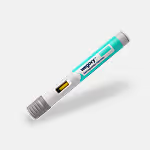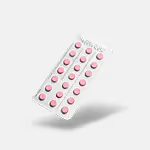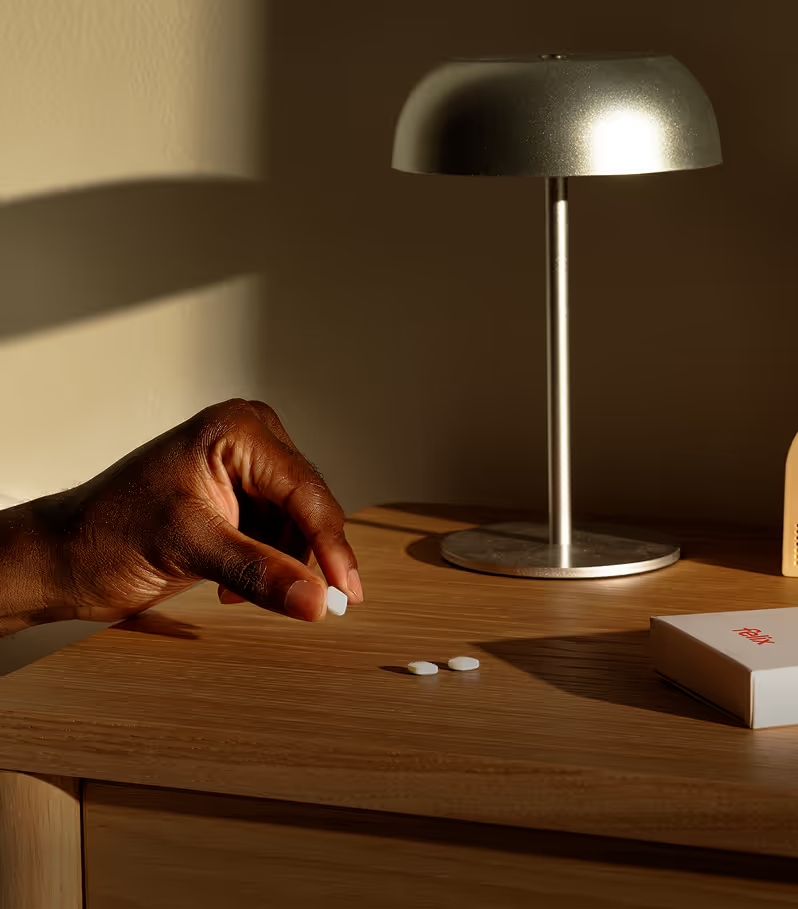Download the Felix App
Earn reward, visit our shop and get exclusive offers on the app
Download nowEarn reward, visit our shop and get exclusive offers on the app
Download nowPut your health first in 2026 with free visits on all categories, and $200 off longevity testing.
Download nowPut your health first in 2026 with free visits on all categories, and $200 off longevity testing.
Download now
AI-generated summaries may be inaccurate and do not constitute medical advice. Third-party AI tools are not under Felix's control, and your use of them is at your own risk.
In this article, you’ll learn the basics about everything there is to know about birth control pills, including:
SIDE NOTE: Before diving into this topic, as part of Felix’s commitment to providing a safe, judgment-free environment for all our patients, it’s important to clarify some terminology regarding this topic.
Birth control pills are only recommended for use by ‘women’, which we want to clarify means any person that was born with a uterus. The use of the word ‘woman/women’ in these blogs only refers to this factor. It has no relevance or implication to a person’s gender or sexual identity.
To prevent pregnancy, birth control pills allow you to control the three phases that are necessary for pregnancy to take place. This includes:
When taken as prescribed, the birth control pill is approximately 99% effective. But, if your timing is off or you miss a pill, that effectiveness rate drops to 92%. Basically, the better you are at taking the pill as prescribed, the better it will be at doing its job.
There are two main types of birth control pills: Combination pills and progestin-only pills.
This type of birth control pill is the most common, especially for women under 35. Combination pills contain two hormones: estrogen and progestin. Both hormones work together to prevent your eggs from becoming fertilized.
Apart from acting as a powerful contraceptive, combination pills can have a bundle of other benefits, including:
(Please note that not everyone will experience these benefits. Each body will react to the combination pill slightly differently.)
In addition, studies have also shown that combination pills can reduce perimenopausal symptoms, such as irregular periods, heavy bleeding, and hot flashes.
However, keep in mind that if you’re over the age of 35 and smoke, or have a history of blood clots, migraines with aura, breast cancer or liver disease, high blood pressure, or are breastfeeding, your doctor may advise you not to take a combined birth control pill.
This type of birth control pill contains only one hormone: progestin. It has a lower dose of progestin than the combination pill. If you’re being prescribed progestin-only birth control, it’s most likely because you fall under one of four categories:
Progestin-only pills can be a safe and effective option for women who have certain health conditions, such as blood clots.
Just like any medication, progestin-only birth control comes with its own set of side effects. Some women experience irregular spotting or bleeding during the first few months. Others may have side effects, such as headaches, acne, breast sensitivity, mood swings, or unwanted hair growth,
For more in-depth information on the types of birth control pills available, read our article Which Birth Control is Best for Me?
Traditionally, birth control pills were packaged in a simple 28-day cycle. This included 21 birth control pills and 7 placebo pills (often made from sugar) to be taken during the week of your menstruation.
Nowadays, you have a variety of package sizes to choose from. For example, some packs have 24 days worth of birth control pills and only 4 days worth of placebo pills. By adjusting the size of your pill pack, you can lighten your bleeding, or even skip the menstruation phase altogether.
For birth control pills to work effectively, it’s important to take one pill orally every day at the same time. Choose a time that works best for your schedule, whether it’s during your lunch break or right before bed.
Once you’ve finished all your birth control pills, you have three options:
If you choose option three, your period will be either completely skipped, or become lighter.
First off, don’t panic. Most women have missed taking their pill. In fact, this is one of the most frequently asked questions we get about birth control pills.
The solution depends on the timing of when you missed your pill. If you missed a pill by less than 24 hours, these are the steps to take:
This could mean that you’re taking two pills in one day or close in timing. Both options are safe and will continue to protect you from unwanted pregnancy, albeit at a slightly lower efficacy rate.
However, if you’ve missed taking you pill by more than 24 hours, you have two options:
If this means you need to skip your pill break or placebo run, you might not have your next period. This is completely safe.
If you had intercourse without a condom in the five to seven days prior to the missed pill, you might want to consider using emergency contraception as an extra precaution, but consult your doctor first if possible.
When to start birth control pills is another one of our most commonly asked questions. After you get the prescription and pills, what’s next?
The good news is that you don’t need to wait for your period to start in order to take your first pill. You can start taking your birth control pills on any day, at any point in your cycle.
Make sure to keep track of when you begin and what time you take your pill each day. Also reference the packaging of your birth control pills because it will tell you what day you are on, whether you use a 21- or 28-day pack.
Effectiveness depends on when you take your first pill. As a rule of thumb, it’s safest to wait one week before the birth control pill starts to take effect.
If you take your first pill any other time during your cycle, it will take seven days to become effective. After one full week of taking a pill every day at the same time, you’ll be in the clear. During those seven days, make sure to supplement by using other forms of contraception.
While birth control pills are a healthy way to prevent pregnancy, they won’t stand in the way of you having a baby when you’re ready.
Studies have shown that over 83% of women get pregnant within a year of stopping birth control.
The timing can vary quite a bit. In one study, researchers found that women who were previously on progestin-only pills got pregnant at a rate similar to those who simply stopped using condoms.
In a nutshell, as soon as you decide that you want to get pregnant, you’ll need to stop taking your birth control pills. Continue to have intercourse within your fertile window, and always check in with your healthcare provider if you need extra guidance.
The world of birth control can be a confusing place for many women. Finding the right option for your body, lifestyle, and protection needs can feel overwhelming. Even after learning all about birth control pills, we know you might have more burning questions.
At Felix, we're supported by some of Canada's leading physicians and pharmacists. Our team of experienced healthcare practitioners are always available to make recommendations based on your unique medical history. From there, we can prescribe what you need, set up a refill schedule, and deliver your prescription right to your door.
Because every woman is unique, your birth control recommendations should be, too.
Medically reviewed by
References




























